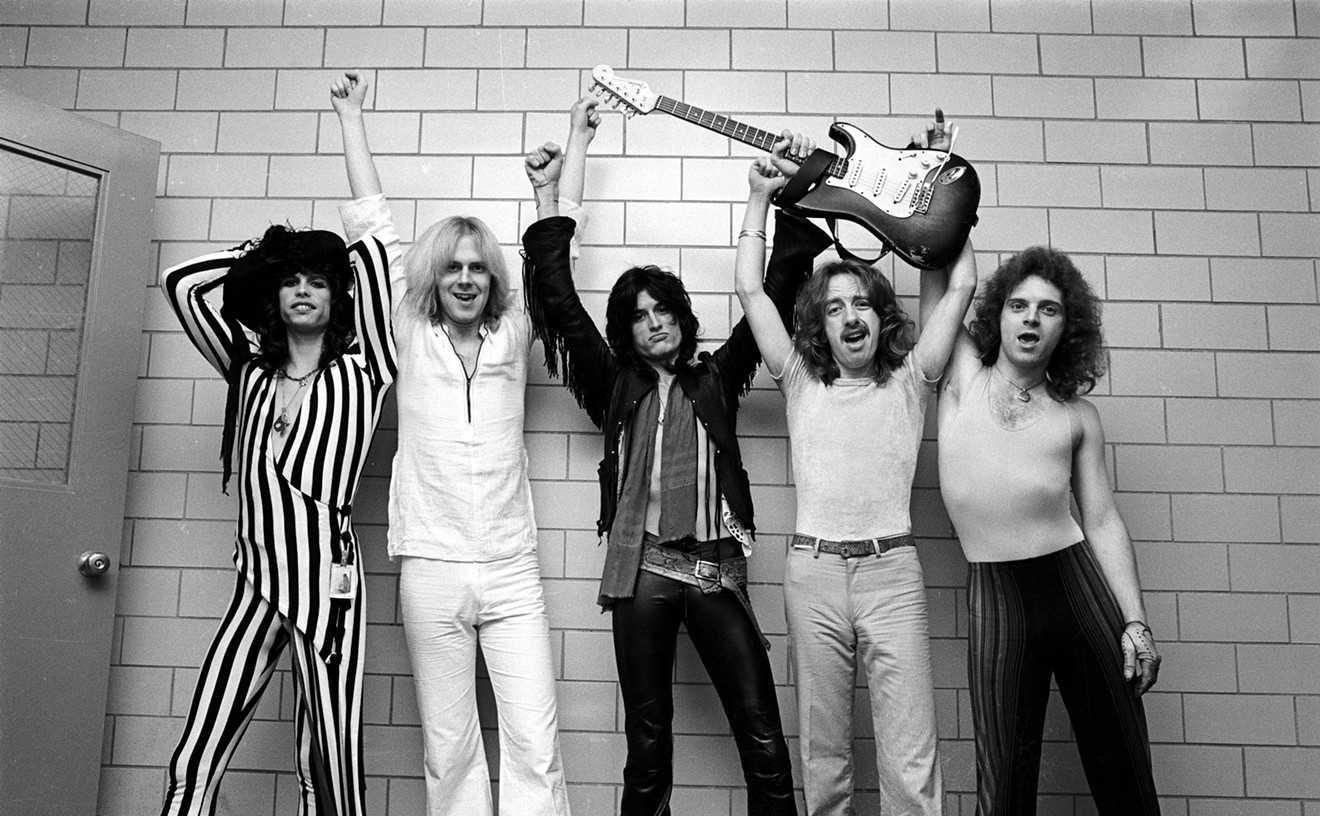There is no narration in the documentary Heaven Adores You, a film about the life and music of folk-punk hero Elliott Smith.
Instead, the story of his life is told by Smith himself through his music and past interviews with the singer-songwriter. His friends and family join him in the present to reminisce about the funny and creative genius who wrote songs from an early age and became a pillar of the 90's Pacific Northwest music scene with his alternative band Heatmiser. Smith's solo career took off in 1998 after the song "Miss Misery" was nominated for Best Original Song for the film Good Will Hunting, but the beloved artist would die five years later at the young age of 34 from two self-inflicted stab wounds to the chest.
Director Nickolas Rossi, who had a chance meeting with Smith in 1998, created the partially crowdfunded film to show the indie star not as a tragic figure, but someone whose immense talent and clever personality resonated with people. The result is a visual and audio collage that paints an intimate portrait of Smith and the influence he continues to have on music today.
Up On The Sun: Heaven Adores You isn't a typical documentary. There's no narration and the visuals of Portland, Los Angeles, and New York City tell a lot of the story.
Nickolas Rossi: From years of listening to Elliott Smith's music, I felt there was a really interesting opportunity to pair some of Elliott's lyrics and melodies with some visuals from the cities that he lived in. I wasn't trying to decipher or really illustrate his lyrics, but to give little impressions of what I felt like were the feelings of his songs visually.
What struck you about Smith's music when you first heard it two decades ago?
At that time, of course, he wasn't really the mythological rock star that he is now. He was just a guy in a band. His solo stuff was different than what was coming out of the Pacific Northwest in the '90s. Not a lot of people were doing that, especially people who were in loud rock bands like Heatmiser. His grasp of melody was very unique in its own way. His poetry and his ability to speak on universal themes is the one thing that hooks people into his music and makes it very accessible.
My first impression of seeing him was that I found it very interesting that some guy who was in a rock pop-punk band is now with just an acoustic guitar and whispering these vocals. It was different than what was happening at that time.
Was there a connection you had with Smith that inspired you to create this documentary?
I think that everyone discovers Elliott Smith at a time that they need to have somebody sing about things that seem very relevant to their life and their experience, whether that's heartache or love or struggle. When I listened to him in my early 20s, I was getting something out of his music and lyrics that was very comforting at that time. It was something very visceral. I felt he was singing songs about situations I was in at the time.
That changed over a number of years, especially when going into the project. I really started listening to Elliott's music in a different way, like a craftsman. He was a storyteller who was able to observe situations and write about them in sometimes very witty and darkly humorous ways. I really started to appreciate the poetry of his music more than I did when I was in my twenties. A lot of his songs feel very personal. They're applicable in different times of your life. Did you decide to start the movie in 1998 because that's when so many people discovered him for themselves?
A majority of people discovered Elliott Smith after his appearance on the Academy Awards. It's probably unlikely you knew about him unless you lived in the Pacific Northwest or were really tuned into the music scene, but he wasn't this mainstream sensation. All of a sudden millions of people are wondering who this guy is in the white suit. It's a pivotal point in Elliott's career because that's when the spotlight really is on him. For better or for worse, that is a common introduction to Elliott Smith.
[There he is] at the peak of his career and clearly he's in over his head, but he's joking about it. That's the point in his life when I wanted to introduce Elliott because that's the most recognizable version of him. Then we can take you back to Portland in the 90's where it all began.
Do you think that people read too much into his music and look for reasons behind his suicide now that he's tragically passed?
I don't know. That's a great question. I think the media perpetuates that sad, depressed, dark mythology. Elliott was clearly making some not great decisions toward the end of his career in terms of substance abuse and whatnot. It's a shame that people would listen to his music and glom on to the sad aspect of his music. Clearly it was there, but there was more to the artist than this perceived persona. There was a real lightness in the life and work of Elliott Smith. That was the place I wanted to focus everything on.
What was the most surprising thing you learned about your subject?
The most surprising thing is that he was making music at a very early age. I didn't really anticipate that part of it. I thought it went as far back as Heatmiser. He was is bands in college like Harem Scarem and Stranger Than Fiction. It goes back to junior high. That song [in the film] "In My Room" goes back to when he was 13 or 14 years old. For someone that age to be composing a composition that complex and probably recording it on a 4-track just shows that he had this incredible talent from a very early age. I didn't know how good he really was so very early on.
The first 30 minutes of the movie when we're introduced to his sister and see the photos of him growing up, he looks so radically different from our notions of him. "In My Room" has such simple lyrics but melodies are just so mature.
It's sort of a Billy Joel or Elton John caliber song. There are key changes and a bridge. It's amazing that someone that young was thinking on that level. The lyrics are so simple and from the mind of a thirteen year old, but his room was probably the extent of his world at that point. It was shocking. When I heard it I said, "That's Elliott Smith? The Elliot Smith?"
There's a point in the film when someone mentions how protective Smith's fans are of him. Do you feel this documentary will help protect his legacy?
Maybe. It's just my take on the life of Elliott Smith. I'm sure that someone else can go and make a different film or exploit other aspects of his life that I chose not to focus on. I didn't make this film because I wanted to protect his legacy. I really wanted people to know where the music came from.
He was just a guy. He was a guy who had odd jobs, played in a band, and made amazing music that people are still affected by. The goal of the film was to celebrate the process of the artist, where this music came from, and where geographically he made it. When we screen the film in places like Spain and Australia and meet people who've never been to New York, Portland, or Los Angeles, it really gives them an idea where this music that they enjoy was actually created and gives them a visual template. I think the fans do a really great job of protecting him, but it was never my intention to protect him. It was more to share music and anecdotes from his friends with the fans. That's beautiful and not something we had to protect Elliott from. He was just a normal dude.
Heaven Adores You is scheduled to play Tuesday, May 12 and Wednesday, May 13 at FilmBar.











